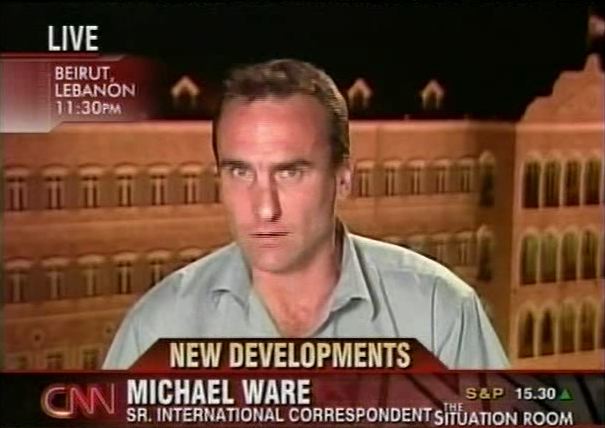TSR: Evaluating Hezbollah capabilities

Click photo to play
Length: 2:55
WOLF BLITZER: Let's bring in CNN's Michael Ware. He's on the ground for us from Beirut.
Michael, it looks like the Israelis have been somewhat surprised by the military capabilities of Hezbollah. What do we know? And you are there on the scene. You have studied this group for long time. What kind of capabilities do they have? Are there any real surprises that they might have in store?
MICHAEL WARE, CNN CORRESPONDENT: Well, there's still the possibility, Wolf, that they have an even longer-range missile, though small in number, some analysts predict only about a dozen, if any at all, of the Zelzal rocket, which, theoretically, could reach as far as Tel Aviv.
So far, we have seen no evidence of that, although there was a question by the Israeli Defense Force about whether they had actually blown one of these missiles up.
The real mystery, Wolf, is, just what does Hezbollah have? These guys have kept such a tight-knit circle of security around their intelligence and capabilities. Speaking to some of its members, they talk about compartmentalization of the organization, like never before in recent years.
So, no one really has the ultimate handle on who has what. There could still be further surprises in store -- Wolf.
BLITZER: Michael, you have spent a lot of time, as all of our viewers know, in Iraq. You know the Iraqi insurgency. Some are already making comparisons between Hezbollah and the Iraqi insurgents.
You're in Lebanon right now. Do you see similarities, or are these two very different groups?
WARE: Well, there is a very different look and feel, but there are some common tactics, methodologies. Certainly, we have even seen a transfer of technology from Hezbollah to Shia insurgent groups in Iraq. The deadliest roadside bomb, commonly known as an IED, that has been penetrating U.S. Abrams tanks like a fist through a wall originated from Lebanon.
U.S. intelligence believes that there has been an exchange of personnel and training, potentially via Iran, to share that expertise. Nonetheless, Hezbollah has done something that Iraqi insurgents aspire to, and certainly al Qaeda aspires to. That is, they have their own territory. They have created their own mini-state.
Plus, they are able to put semi-conventional units in the field. So, there's a degree of development with Hezbollah that has come from decades of hardened battle experience that puts them some steps ahead in certain regards.
BLITZER: Michael Ware, on the ground for us in Beirut -- Michael, thank you very much for that.
